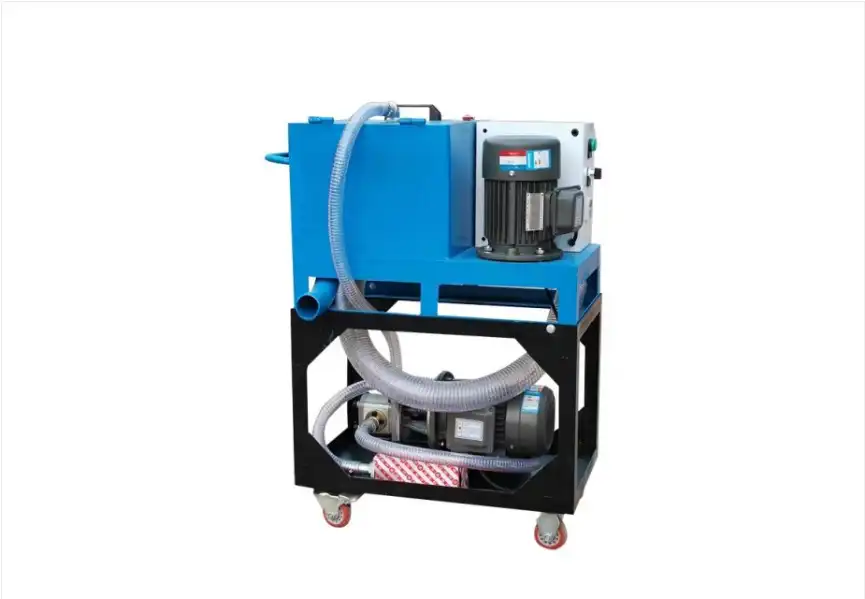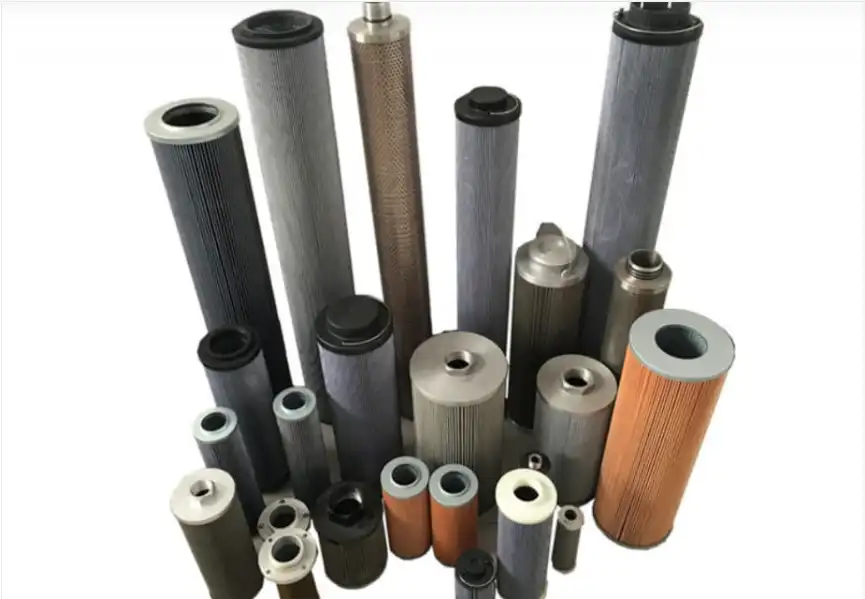How to Extend the Life of Your Equipment with Proper Hydraulic Cylinder Care
Proper hydraulic cylinder maintenance prevents costly breakdowns, boosts machine efficiency, and extends equipment life. Regular checks, clean oil, and quality parts from trusted suppliers like Ourun ensure smooth operation, fewer repairs, and reliable performance in tough conditions like construction or farming.

Neglecting Cylinder Care Leads to Costly Downtime and Repairs
Hydraulic cylinders are key parts in heavy machines. They’re used in construction, farming, and factories. If you skip caring for them, trouble comes fast. Machines can stop working suddenly. This causes long delays. Emergency fixes cost a lot too. The hydraulic system needs all parts in good shape to run well. A tiny problem, like a worn seal or dirty oil, can grow big if ignored.
Work delays don’t just slow you down. They raise costs for workers and repairs. Fixing things after they break is pricier than regular care. Keeping cylinders in good condition stops these issues. It also makes machines last much longer.
Well-Maintained Cylinders Improve System Efficiency and Performance
Hydraulic systems need steady pressure and smooth fluid flow. A well-kept cylinder helps with this. It gives reliable power and saves energy. Clean parts let oil move easily. Pressure stays right. This makes the whole machine work better.
Regular checks are super helpful. Swap out old seals. Check if the rod is straight. Grease moving parts. These steps keep cylinders strong. As a result, machines respond quickly. They get more work done. Plus, they have fewer problems.
Preventive Maintenance Reduces Unexpected Failures
Preventive care means checking things on a schedule. Base it on how much the machine is used or the environment it’s in. Don’t wait for something to break. This smart approach finds early wear. It lets you fix small issues before they turn bad.
Simple tasks matter a lot. Look for leaks. Check if the oil is clean. Inspect rods for scratches or rust. Make sure seals are okay. These steps stop sudden breakdowns. They also build trust in your equipment. Over time, they save money on big repairs.
What Are the Key Signs Your Hydraulic Cylinder Needs Attention?
Leaks, Unusual Noises, and Jerky Movements Signal Internal Wear
A clear sign of trouble is fluid leaking near seals or connections. Leaks lower the system’s pressure. They can also be risky in heavy-duty setups. Strange noises, like bangs or squeaks, are another clue. They might mean parts inside are worn or out of place.
If the cylinder moves shakily, seals could be damaged. Air in the fluid line might cause it too. Don’t ignore these signs. Fix them fast to avoid bigger harm to the system.
Decreased Force or Speed Indicates Seal or Rod Damage
Sometimes a cylinder doesn’t push or pull strongly. It might move slower than usual. This happens if seals are worn and let fluid leak inside. Pressure might drop too. A bent rod or scratched surface can also mess up piston movement.
These problems slow down work. They also stress other system parts. Watch how the machine acts. Catching issues early saves you from costly repairs later.
Frequent Contamination Suggests a Need for Better Filtration
If oil keeps getting dirty, like with gunk or clogged filters, your filtration isn’t good enough. Tiny bits of metal, dust, water, or old oil can wear out seals fast. They damage other parts too.
Improve your filtration system. This stops dirt from getting in. It keeps the system healthy and working well.

How Can You Keep Hydraulic Cylinders Clean and Contaminant-Free?
Dirt and Debris Are Major Threats to Cylinder Health
Dirt is a big reason cylinders fail early. Tiny bits of grime can sneak in during setup or use. They scratch smooth surfaces inside the cylinder or around the rod. This causes wear and tear.
Use Sealed Storage Areas for Spare Components
Store extra cylinders or parts in closed spaces. Keep dust and moisture out. This stops dirt from sticking to key areas before you use them.
Regularly Inspect Hoses and Fittings for Breaches
Cracks in hoses or fittings cause leaks. They also let dirt into the system. Check them often. Look for splits or loose spots that could ruin cleanliness.
Upgrade Your Filtration System for Cleaner Oil
A good filter setup is super important. It stops dirt-related failures. Choose filters that fit your machine’s needs. They should catch tiny particles based on how you use the equipment.
Consider Manual Centrifugal Oil Filters for Efficient Cleaning
Manual centrifugal filters are awesome. They pull out tiny bits from hydraulic oil. They don’t need disposable parts to work.
This Oil Filter Equipment Helps Reduce Wear by Eliminating Fine Particles
Centrifugal systems grab tiny specks regular filters miss. This makes oil cleaner. It helps oil last longer. It also keeps system parts in better shape.
What Are the Best Practices for Lubrication and Seal Protection?
Proper Lubrication Minimizes Friction and Extends Component Life
Moving parts in a cylinder rub together. This creates heat. Without care, parts wear out fast. Use the grease or oil the maker recommends. It keeps a steady layer between parts. This works in hot or cold conditions. It reduces metal-on-metal contact.
Greasing often protects rods. It also saves energy by cutting drag when parts move.
Protecting Seals Prevents Internal Leakage and Pressure Loss
Seals act like barriers inside the cylinder. They stop fluid from leaking. They keep pressure steady. To protect seals, follow these tips:
-
Don’t push pressure too high.
-
Use fluids that won’t harm seals.
-
Align the rod correctly during setup.
-
Replace worn wipers that block dirt.
These habits keep seals strong for a long time.
How Often Should You Inspect or Rebuild Hydraulic Cylinders?
Routine Inspections Help Detect Problems Early
Check cylinders every 250 to 500 hours of use. The frequency depends on how hard they work. Look for rod scratches. Check for swollen seals or leaks near caps. Watch for rust around mounts. Listen for odd noises when the cylinder moves.
Spotting small issues early lets you fix them quickly. This prevents bigger problems that need major repairs.
Rebuilding at the Right Time Saves Money Over Full Replacement
Rebuilding means replacing worn parts like seals or pistons. You can also smooth out damaged surfaces. It’s cheaper than buying a new cylinder. If skilled workers use good parts, the cylinder works like new again.
Plan rebuilds based on machine use. This extends the cylinder’s life without risking breakdowns.
Can Product Quality Make a Difference in Maintenance Results?
High-Precision Components Reduce Friction and Improve Fitment
The materials in hydraulic cylinders matter a lot. They decide how tough the cylinder is under heavy work. Precisely made parts fit perfectly. This reduces rubbing and energy loss during movement.
Top-quality chrome on rods fights rust better. It keeps surfaces slick, so seals last longer. Investing in good parts means less upkeep later. They handle tough jobs well.
Where Can You Find Reliable Hydraulic Cylinder Solutions?
Choose a Manufacturer That Offers Customization, Durability, and Support
Pick a supplier with lots of options. You might need standard cylinders or custom ones. Look for strong designs, like tough steel builds or seals made for your work conditions. Good after-sales support is key too.
Reliable companies give setup advice. They also keep spare parts that fit your model perfectly. This makes future repairs easier with matching parts. For quality, check out Ourun. They’re known for dependable products and great support.
FAQ
Q1: How do I know when my hydraulic cylinder needs rebuilding?
A: Look for constant leaks, even with new seals. Notice if it lifts less under heavy loads. Listen for odd sounds during use, even after greasing. Check for rod damage like tiny holes or scratches.
Q2: How often should I check my hydraulic cylinder for dirt?
A: Check every 250 to 500 hours, depending on use. Look for dirty oil or clogged filters. Clean systems keep your Ourun cylinders working well and prevent early wear.
Q3: Can I use any oil for my hydraulic cylinder?
A: No, use the oil the maker suggests for Ourun cylinders. The right oil keeps parts safe, reduces rubbing, and helps seals last longer






